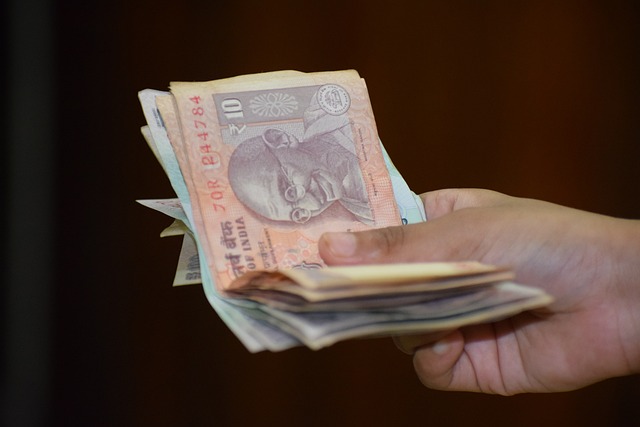Cost of Living in the Netherlands: What to Expect

Living in the Netherlands is often seen as a dream for many, thanks to its picturesque landscapes, world-class education system, and high standard of living. However, understanding the cost of living in this vibrant country is essential before making the move. From housing expenses to groceries, transportation, and entertainment, there are several factors that contribute to the overall expense of residing in the Netherlands. In this article, we will delve into what you can expect when it comes to the cost of living in the Netherlands.
1. Housing Costs: A Significant Expense
Housing is one of the largest expenses for anyone moving to the Netherlands. The cost varies significantly depending on the location within the country. Major cities like Amsterdam, Rotterdam, and The Hague tend to be more expensive than smaller towns or rural areas.
- Rent :
- In Amsterdam, renting a one-bedroom apartment in the city center can cost between €1,500 and €2,000 per month. Outside the city center, prices drop slightly but still remain relatively high at around €1,000–€1,300.
- Other major cities such as Utrecht and Groningen offer slightly lower rents compared to Amsterdam, with one-bedroom apartments averaging €900–€1,200 per month.
- Utilities :
- Utilities (electricity, heating, cooling, water, garbage) typically range from €100 to €150 per month, depending on your usage and the size of your home.
- Internet services usually cost around €30–€50 per month, offering fast and reliable connections.
If you’re considering buying property, keep in mind that real estate prices have been rising steadily over the years, especially in urban centers.
2. Groceries and Dining Out
The cost of food in the Netherlands depends largely on where you shop and how often you eat out.
- Groceries :
- Supermarkets like Albert Heijn, Jumbo, and Lidl are popular choices for locals. Basic items such as bread, milk, eggs, and vegetables are reasonably priced. For example:
- A loaf of bread costs about €1–€2.
- A liter of milk averages around €0.80–€1.
- Fresh fruits and vegetables vary by season but generally fall within €2–€4 per kilogram.
- Supermarkets like Albert Heijn, Jumbo, and Lidl are popular choices for locals. Basic items such as bread, milk, eggs, and vegetables are reasonably priced. For example:
- Dining Out :
- Eating out in the Netherlands can add up quickly, particularly if you enjoy fine dining. On average:
- A meal at an affordable restaurant might cost €15–€25 per person.
- Fast food options, such as burgers or fries, start at €7–€10.
- Coffee culture is strong here; expect to pay €3–€4 for a cappuccino or latte at a café.
- Eating out in the Netherlands can add up quickly, particularly if you enjoy fine dining. On average:
For those who love cooking, purchasing ingredients locally and preparing meals at home is a great way to save money while enjoying Dutch specialties like stamppot or bitterballen.
3. Transportation: Affordable and Efficient
The Netherlands boasts an excellent public transportation network, including trains, trams, buses, and metros. This makes getting around both convenient and affordable.
- Public Transport :
- An OV-chipkaart (public transport card) is necessary for traveling on public transit. Single journeys on local trains or buses typically cost €2–€5, depending on the distance.
- Monthly passes are available for frequent travelers, starting at around €70–€120 based on zones and frequency of travel.
- Cycling :
- Cycling is not only a popular mode of transport but also economical. Many people opt to buy a second-hand bicycle for around €50–€150, which serves as their primary means of commuting.
- Cars :
- Owning a car can be expensive due to high fuel costs, insurance premiums, and parking fees, especially in urban areas. Gasoline prices hover around €1.60–€2 per liter.
4. Healthcare: Universal Coverage with Reasonable Costs
The Netherlands has a well-regarded healthcare system that combines universal coverage with private insurance providers. While medical care is generally accessible and of high quality, residents must purchase mandatory health insurance.
- Health Insurance :
- Basic health insurance plans usually cost €100–€150 per month. Additional coverage for extras like dental care or physiotherapy may increase premiums further.
- Doctors’ visits typically require a small co-payment of €10–€20, while prescription medications vary in price depending on the type and quantity.
Expats should ensure they enroll in a Dutch health insurance plan shortly after arrival to avoid penalties or gaps in coverage.
5. Education: Free or Subsidized Learning
Education in the Netherlands is highly valued and subsidized by the government, making it accessible to all residents.
- Primary and Secondary Schools :
- Public schools are free for children aged 4–18. Parents may need to cover minor costs for school supplies or extracurricular activities.
- Higher Education :
- Tuition fees for domestic students at universities are relatively low compared to other European countries, ranging from €2,200–€3,000 annually for bachelor’s programs. International students, however, face higher tuition rates, often exceeding €8,000–€15,000 per year.
Scholarships and financial aid opportunities exist for eligible students, so it’s worth exploring these options if needed.
6. Entertainment and Leisure Activities
The Netherlands offers plenty of ways to enjoy leisure time without breaking the bank.
- Cultural Events :
- Museums and galleries frequently host exhibitions and events. Entry tickets usually cost €10–€25 per person.
- Concerts and theater performances vary widely in price, with cheaper alternatives available through student discounts or last-minute deals.
- Outdoor Activities :
- Nature reserves, parks, and beaches provide ample opportunities for free or low-cost recreation. Cycling tours along scenic routes are a favorite pastime among locals.



